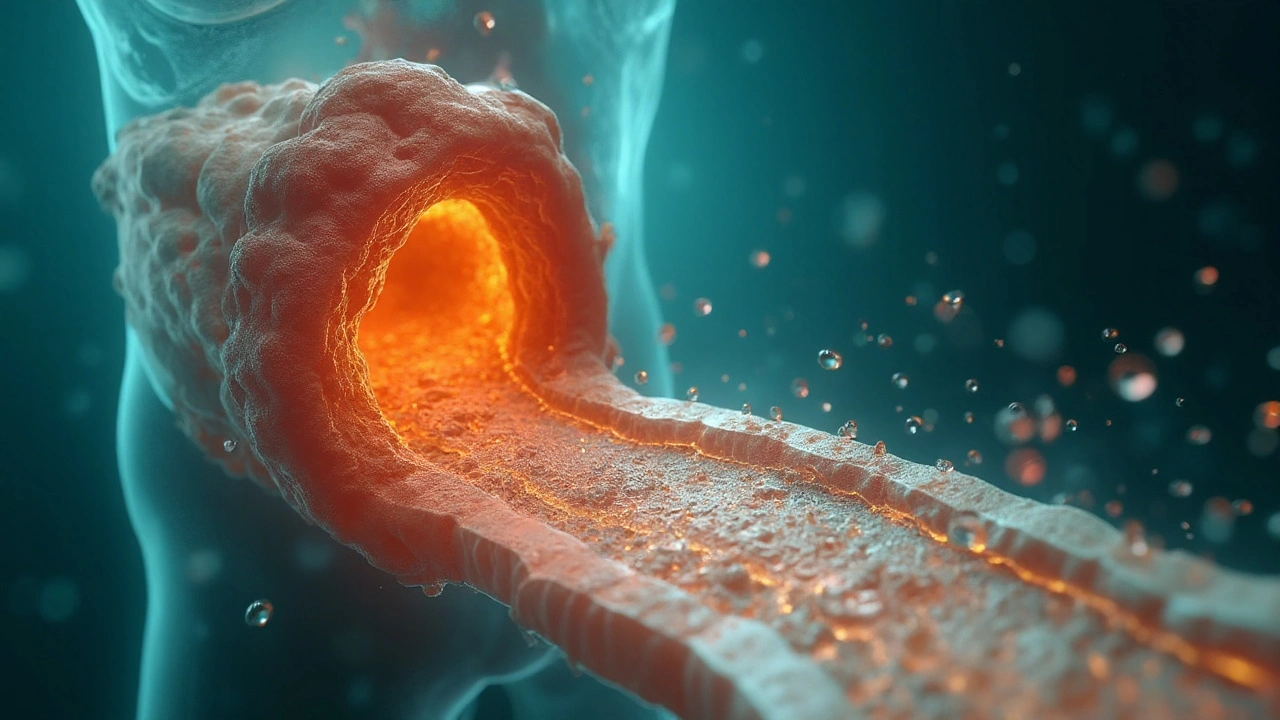Secretin Hormone: Quick Guide to Its Role and Why It Matters
Ever wonder why your stomach can handle a big meal without choking? One of the key players is secretin, a hormone that tells your pancreas and liver to release the right fluids at the right time. It’s not a celebrity hormone, but it keeps your digestion running smoothly.
Secretin is made in the lining of your duodenum – the first part of the small intestine – right after you eat something acidic. When the stomach pumps out acid, the duodenal cells sense the low pH and release secretin into the bloodstream.
Where Secretin Comes From and What It Does
Once secretin reaches the pancreas, it triggers the release of a watery, bicarbonate‑rich juice. This juice neutralizes the stomach acid, creating a safe environment for digestive enzymes to work. Without enough secretin, the acid could damage the intestinal wall and mess up nutrient absorption.
The hormone also tells the liver to produce bile, another fluid that breaks down fats. So secretin actually coordinates two major digestive helpers – pancreatic juice and bile – making sure they arrive together when needed.
Medical Relevance and Testing
Doctors sometimes measure secretin levels to check for pancreatic problems. Low secretin can point to issues like chronic pancreatitis or certain types of pancreatic cancer. The test involves a short infusion of synthetic secretin and then measuring how much pancreatic juice is produced.
Secretin also has a therapeutic role. In the past, it was used to treat rare conditions like pancreatic exocrine insufficiency, where the pancreas can’t make enough digestive fluids. Though newer drugs have taken over, secretin is still a useful tool in some diagnostic labs.
If you’re dealing with persistent abdominal pain, unexplained weight loss, or frequent diarrhea, your doctor might consider a secretin test to see if your pancreas is responding correctly. The procedure is generally safe, with only mild side effects like a brief headache or nausea.
For most people, secretin works silently in the background. You won’t feel it, but you’ll notice the difference when your meals are digested without the uncomfortable burning or bloating that can happen when the system is out of balance.
Want to support healthy secretin function? Eating balanced meals with moderate acidity, staying hydrated, and avoiding excessive alcohol can help keep the duodenal lining happy. In extreme cases, doctors may prescribe supplements or enzyme replacements, but that’s a decision made after testing.
In a nutshell, secretin is the messenger that tells your pancreas and liver to roll out the welcome mat for food. It keeps the acid in check, boosts enzyme activity, and helps your body absorb nutrients efficiently. Knowing a bit about it can make you more aware of how your gut works and when something might be off.
Next time you finish a big breakfast, give a mental nod to secretin – the unsung hero that makes sure the party in your gut doesn’t get out of hand.
Secretin Explained: Science, Safety, and Real-World Uses of the Secretin Supplement
What secretin is, what the science says, who it helps, and why most "secretin supplements" won’t work. Evidence, safety, and practical next steps in 2025.
